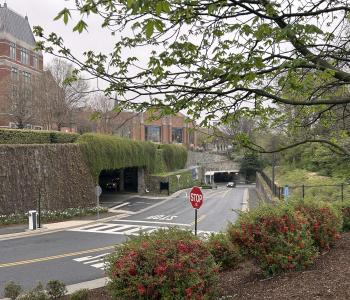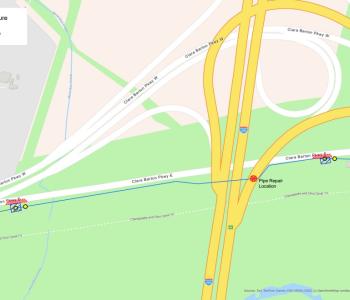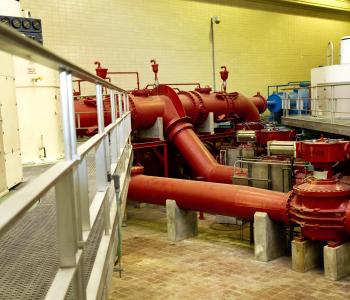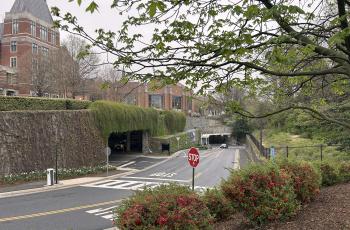DC WASA budget to fund critical system improvements & new federally mandated environmental programs
The District of Columbia Water and Sewer Authority (DC WASA) board of directors has adopted a spending plan to upgrade critical infrastructure and meet increasingly stringent federal regulatory requirements. DC WASA board chairman William M. Walker says there is a serious need, not just in the District, but nationwide, to upgrade aging water and sewer infrastructure, while still providing reliable day-to-day services.
Mr. Walker said, Safe, reliable water and effective wastewater treatment systems are essential to public health. It is imperative that we deliver these critical services in a responsible manner that improves the environment and enhances the quality of life for the community. And that comes with a cost.
The Board also addressed the tough economic times, passing an addition to the Customer Assistance Program that extends a credit to sewer services in addition to the existing water service credit. The new credit of 4 hundred cubic feet (Ccfs) or 2,992 gallons (1 Ccf = 748 gallons) per month per household more than doubles the credits for eligible customers and is retroactive to October 2008.
At its January 8, 2009 meeting, the board approved a fiscal year 2010 (beginning October 1, 2009) Operating Budget of $393.6 million, which represents a $30.4 million increase, or 8.4 percent, over the previous year. Included in the budget is a proposed 10 percent increase in the rate that customers in the District pay for water and sewer services and a new monthly impervious surface charge for all District property owners. The primary driver of these rate adjustments is the cost of DC WASAs Capital Improvement Program (CIP) and the escalating costs for utilities and chemicals.
The CIP is a 10-year, $3.2 billion construction program required to repair and upgrade the Districts water, sewer and wastewater treatment systems, and to meet federal water pollution control regulations.
The District of Columbia is like other major cities with a significant amount of buried water and sewer infrastructure. Parts of these systems are more than a hundred years old and near the end of their useful life, General Manager Jerry N. Johnson explains. We have recently completed comprehensive assessments of the water and sewer systems and identified much-needed infrastructure improvements.
Most of the high-priority water and sewer projects will be addressed in the early years of the 10-year CIP. However, not all the projects are included and the remainder will need to be funded and programmed over the next 20 years, says Johnson. Two big-ticket items that are included in the CIP are the federally mandated Blue Plains Total Nitrogen Project to protect the Chesapeake Bay and the Districts Long Term Control Plan (combined sewer overflow control) at approximately $1.6 billion of the $3.2 billion 10-year total.
Federal funding has been significantly reduced over the years. Ratepayers are the major revenue source for maintaining and upgrading the Districts water and sewer infrastructure. In order to manage the very large infrastructure costs, the boards policy is to raise rates gradually and predictably over time, rather than delaying charges in a way that results in sudden rate spikes.
DC WASAs proposed 10 percent water and sewer rate adjustment represents the first double digit rate increase request since 1997, but is still moderate when compared to rate increases at like utilities nationwide. The board will host a public hearing on the rate proposal in the spring. If the board adopts the proposed rate in September, it will go into effect in October 2009. The General Manager has been asked by the Board to look for opportunities to reduce costs in order to keep rate increases as reasonable as possible.
The board also approved a new change on the bill that will take effect as early as April. Currently, DC WASA uses a portion of the District ratepayers sewer charges to pay for the $2.2 billion Long Term Control Plan. These costs will be separated from the monthly sewer charge and included on a separate line on the bill as an impervious area charge or IAC. This monthly IAC will be $1.24 per equivalent residential unit (ERU), based on the current 2009 rates. All residential property owners will be charged one ERU. The IAC will increase to $2.20 per ERU, if the Board approves the proposed rate increases for 2010. With these rate adjustments, the total monthly DC WASA charge for service will increase from $49.98 to $55.52 for the average customer.
In addition, and if the board approves these proposed rate adjustments in September, the Districts Right-of-Way/Payment In Lieu Of Taxes (PILOT) fee will increase from $0.52 per Ccf to $0.57. These fees are charged to WASA by the District government and are passed through as a separate line item on the DC WASA bill. Under the current proposal, the typical residential customers monthly bill would increase by approximately $5.96 per month (based on an average monthly usage of 8.33 Ccf or 6,231 gallons of water). The average total bill from DC WASA, including the District charges, would increase from $56.29 to $62.25. Even with these rate increases, one gallon of DC WASA water costs only a penny.
*Rather than use the per-gallon water purchase rate to pay for the $2.2 billion combined sewer overflow (CSO) control plan, the Impervious Area Charge is assessed by the area on each property producing water runoff entering the citys sewer system.







